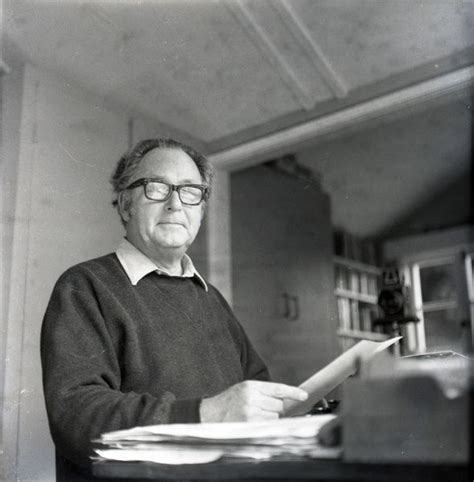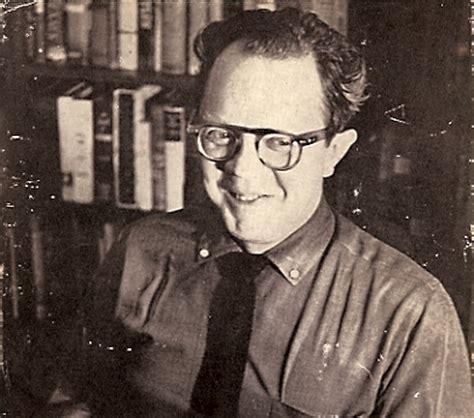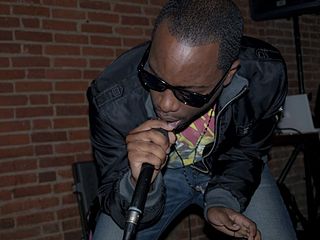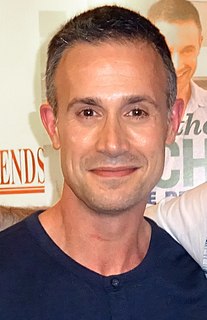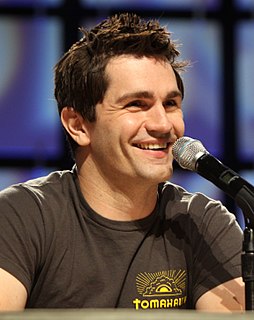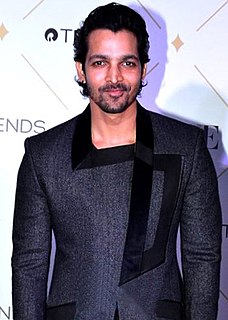A Quote by Kevin Bacon
My father was into fame and leaving his mark. He was a city planner, sort of a genius in that world, the Robert Moses of Philadelphia. He was on the cover of 'Time' once, and I remember going to his office and seeing, like, two hundred copies, which he would hand out to people.
Related Quotes
I don't think I would have been a good architect. Really, I have thought about this from time to time, and I might have wound up like my father, who never did find that which he could devote his life to. He sort of drifted from job to job. He was a traveling salesman, he was a bookkeeper, he was an office manager, he was here, there, there. And however enthusiastic he was at the beginning, his job would bore him. If I hadn't had the writing, I think I might have replicated what he was doing, which would not have been good.
Business in a certain sort of men is a mark of understanding, and they are honored for it. Their souls seek repose in agitation, as children do by being rocked in a cradle. They may pronounce themselves as serviceable to their friends as troublesome to themselves. No one distributes his money to others, but every one therein distributes his time and his life. There is nothing of which we are so prodigal as of those two things, of which to be thrifty would be both commendable and useful.
There is little doubt that, until 1846 when he helped to engineer the resignation of Robert Peel, Disraeli was driven by an ambition to make his mark rather than by any consistent political purpose, and that his attacks on Peel would have not have been so mounted had he been given in 1841 the office for which he had asked.
Never did he once consider directing his hatred toward the hunters. Such an emotion would have destroyed him ... His subconscious knew what his min did not guess-that hating them would have consumed him, burned him up like a piece of soft coal, leaving only flakes of ash and a question mark of smoke.
Nowadays a businessman can go from his office straight to the airport, get into his airplane and fly six hundred or seven hundred miles without taking off his hat. He probably will not even mention this flight, which a bare twenty-five years ago would have meant wearing leather jacket and helmet and goggles and risking his neck every minute of the way.
My earliest influences would definitely be my father, just seeing him play in different bands and going to his shows and going to the rehearsals. You know what I'm saying, it was the typical story of a son looking up to his dad. So the years that my father was around, my father was my biggest influence.
The idea of going to the movies made Hugo remember something Father had once told him about going to the movies when he was just a boy, when the movies were new. Hugo's father had stepped into a dark room, and on a white screen he had seen a rocket fly right into the eye of the man in the moon. Father said he had never experienced anything like it. It had been like seeing his dreams in the middle of the day.
I just want people to recognize my father as an artist who was way ahead of his time. He was a genius. His life just burnt out quicker than it should have. And that is unfortunate, but what is more unfortunate is that everybody focuses on the nature of his death as opposed to the nature of his life, which was so much greater and more important.
Man is more than his environment. It is from the innate quality of the Spirit in him, his inner storehouse, that he draws those ideas, his intuitions, which unify his perceptions of the external world instantaneously with a value which is qualitative and not quantitative, and which he embodies in the works of his culture - those achievements which belong not only to one particular time but to all times, and mark the path of his upward progress.
Clay Felker was then - he had - to his credit, he had created New York Magazine, which was the first of the city magazines that covered the city and gave all kinds of advice and all that sort of stuff. And there were copies all over the country by the time he left. He had, however, a view of journalism that was very much, I must say, like Tina Brown's at The New Yorker. You hit 'em hard, fast, give 'em something to talk about the day after the paper comes out, as contrasted with William Shawn, who gave them something to talk about two or three years from then.
The Disney sale happens, Clone Wars closes out, and they start Rebels. And I remember talking with Dave Filoni at the studio, at a time when I didn't know what I would or wouldn't be doing for Star Wars. And Dave kind of shrug his shoulders and says what I don't have the courage to bring up, which is, "You know Maul is coming into Rebels, right?" And I was hoping! I feel like this guy, he got his mileage. He's had more than his fair share at trying to make his mark on the Star Wars universe.
Father Time is not always a hard parent and though he tarries for none of his children, often lays his hand lightly upon those who have used him well; making them old men and women inexorably enough, but leaving their hearts and spirits young and in full vigor. With such people the gray head is but the impression of the old fellow's hand in giving them his blessing, and every wrinkle but a notch in the quiet calendar of a well-spent life.
My father was a doctor, but his passion was making cars, and he was also very good at carpentry. He was a gem, and I don't blame him for not understanding me. When I told him that I would be leaving, he checked his pocket and took out 100-rupee note and gave it to me. He did not like that I was leaving, yet he gave me the money.
At 15 [my father] revolted against his father like any teenager, and said, "I'm out of here! What are you doing to me?" He thought he wouldn't be involved in that kind of stuff for the rest of his life. He just wanted to make money. He was one of those people who took over the family responsibility. His own father was pretty irresponsible with money and borrowed from people all the time.




